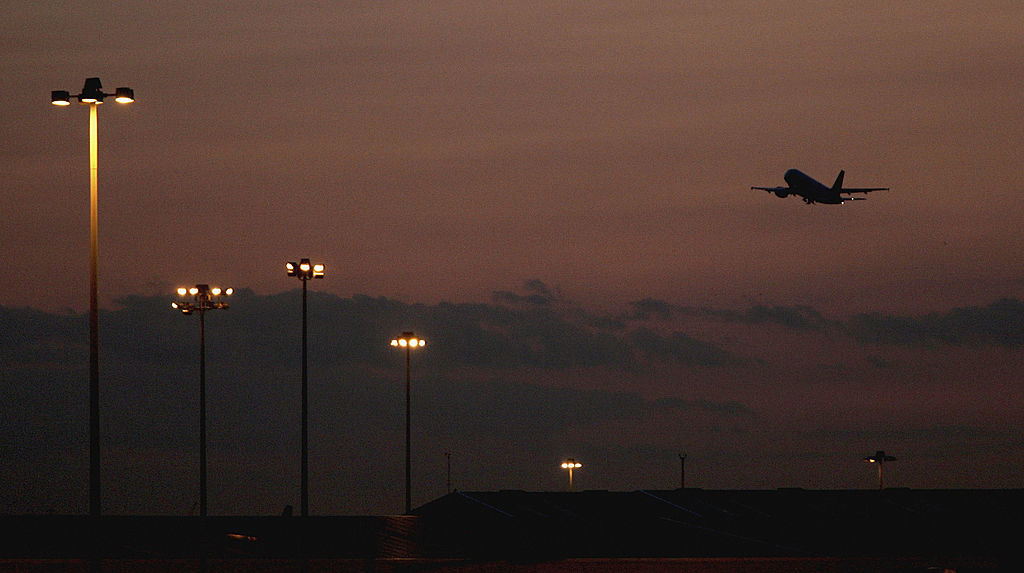A new study has found that the loud noise that airplanes make when taking off and landing can harm the heart health of residents near airports.
People exposed to high levels of aircraft noise may have reduced heart function, increasing the risk of heart attacks, strokes and irregular heartbeats, researchers noted.
A recent study led by researchers at University College London (UCL) in the UK found that people living near noisy airports had 10 to 20 percent worse heart structure and function compared to people living in relatively quiet areas with less aircraft noise.
In particular, their heart muscles became harder and thicker over time. These types of heart changes, which reduce the heart’s ability to contract and expand, can impair its ability to pump blood and increase the risk of major heart disease, such as a heart attack or stroke, by up to four times, researchers estimated.
Journal of the American College of CardiologyFor the paper published in , researchers analyzed data from the long-term UK Biobank health research project involving more than 3,600 people living near Heathrow, Gatwick, Birmingham and Manchester airports.
The researchers compared MRI scans of the participants’ hearts with estimates of aircraft noise produced by the UK’s Civil Aviation Authority.
High aircraft noise was defined as an average of 50 dB or more during the day and 45 dB or more at night. The World Health Organization (WHO) recommends maintaining the noise level below an average of 45 dB during the day and 40 dB at night.
It is known that the risk of hearing loss begins when noise exceeds 70 dB. A typical conversation is about 60 dB, and average indoor noise is about 40 dB.
The study found that people exposed to loud aircraft noise had a 7% increase in heart mass, a 4% thicker heart, and impaired heart function.
In particular, nighttime aircraft noise was found to have a more serious impact. This may be related to disrupted sleep, which is very important for maintaining heart health. Additionally, people are more likely to be exposed to aircraft noise at night when they are at home.

“Studies have shown that night-time aircraft noise affects sleep quality, which may be an important factor influencing health,” Professor Anna Hansell, from the University of Leicester, said in a UCL press release. Professor Hansell also participated in this research.
Noise pollution can trigger a stress response and overactivate the sympathetic nervous system, which can increase blood pressure and promote the release of stress hormones such as cortisol. These factors can cause heart abnormalities, inflammation, and arteriosclerosis.
Dr Cristian Toprisciano, from UCL and the study’s first author, explained that noise exposure can cause a variety of health problems that affect heart health.
First, increase your BMI (body mass index). Noise-related stress and sleep disturbances can promote weight gain, an important risk factor for heart disease.
Increased blood pressure is also a major symptom that can be caused by aircraft noise. Prolonged exposure to noise can activate the stress response, which can increase blood pressure and put a strain on the heart.
“We are concerned about the risk that abnormalities seen in night-time aircraft noise could lead to increased risk of heart problems and stroke,” Professor Hansell said.
“Because our study was observational, we cannot definitively say that high levels of aircraft noise directly caused differences in heart structure and function. However, our findings add to the evidence that aircraft noise can have a negative impact on heart health,” said Dr Gaby Captur, senior clinical lecturer at the UCL Institute of Cardiovascular Sciences.
The findings highlight the need for governments and the aviation industry to take steps to reduce exposure to aircraft noise for residents near airports.
Source: www.donga.com


